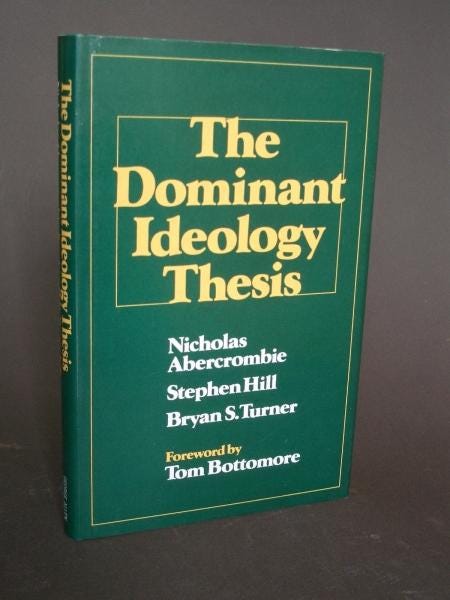Probably written sometime late 2018.—BV
Historical materialism is the science developed by Marx and Engels which forms the core of Marxism. It explains how each epoch in human history is characterised by interpenetrations of different ‘modes of production’, different modes of human political-economic activity. As a result of the different modes in which human society has been organised, historical materialism shows how the history of human civilisation has been the history of struggles between different economic classes of people. Most fundamentally, historical materialism shows how capitalism pushes the struggle between classes in society to an absolute extreme. The two most important classes in capitalism are the working class and the capitalist class—the bourgeoisie. In this article I will only be concerned with the relevance of historical materialism of explaining capitalism as it exists today. I will not be concerned with how historical materialism has been used to explain other historical epochs at all. I am singularly concerned with how capitalism functions today, and how we can struggle to overthrow it.
In this article, I want to offer up a new interpretation of historical materialism. From this point forward, I will simply call historical materialism ‘materialism’. When Marxists refer to themselves as ‘materialists’, they are attempting to ground their analyses in historical materialism—they are claiming their analyses show fidelity to the material conditions of struggle, and are grounded in the science of Marxism. So I will simply say ‘materialism’. I wish to offer a new theory of Marxist materialism. I believe there is a lot of confusion about what Marxists really mean when they claim they are ‘materialists’, and so in this contribution I wish to make an argument for what I mean when I claim I am a materialist.
I wish to argue that the ideas of the ruling class—the bourgeoisie—are not dominant under capitalism. The ideas that capitalists promote under the current mode of production are commonly called ‘capitalist ideology’. A large portion of Marxists today assume that capitalist ideology plays an important role in late capitalism. It is commonly assumed on the radical left that institutions like the mainstream media and the education system is able to, to some degree, ‘manufacture consent’ for capitalism by distorting the ideas people have about the political world.
I argue that Marx and Engels did not mean to say that the ruling class under capitalism, as the ruling intellectual force in current society, do not have the ability to control the minds of the working class under capitalism. I follow Bryan S. Turner, Nicholas Abercrombie, and Stephen Hill in their book The Dominant Ideology Thesis (1981) that there is no such thing as the ‘dominance’ of capitalist ideology.
My theory of materialism is meant to make an intervention in how the radical left characterises the struggle for communism in Australia. Many on the radical left assume that ideology—especially capitalist ideology—plays a very important role in keeping capitalism stable and functional in Australia. I wish to argue that this is not the case. The supposed stability and resilience of neoliberalism in Australia has been due to what Turner, Abercrombie, and Hill call ‘dull economic compulsion’. Naked power is the explanation for the stability of capitalism in Australia. The casualisation, cessation of wage growth, and promotion of under-employment under the Australian industrial relations system, the privatisation of public assets, and the massive increase in the cost of living explain the lack of organisation of the working class economically.
Politically, the dictatorship of the Australian Labor Party over the ACTU, and in turn the dictatorship of the ACTU over the trade union movement play an enormous role in shutting down the organisation of workers in Australia. Then there is the Australian state. Enormous amounts of resources have been poured into state and federal police forces to increase the repression of the Australian masses. The role of police repression in Australia cannot be overstated. For instance, Western Australian public transport now patrolled by the police, and not simply transit guards. The role of the police in Australian life is now greater than it has ever been before. The political repression of the Australian state is now at a fever-pitch.
The German Ideology
The popular idea within Marxism that capitalism exhibits a dominant ideology that pervades the mental life of the working class in advanced societies has its origins in The German Ideology:
The ideas of the ruling class are in every epoch the ruling ideas, i.e. the class which is the ruling material force of society, is at the same time its ruling intellectual force. The class which has the means of material production at its disposal, has control at the same time over the means of mental production, so that thereby, generally speaking, the ideas of those who lack the means of mental production are subject to it. The ruling ideas are nothing more than the ideal expression of the dominant material relationships, the dominant material relationships grasped as ideas; hence of the relationships which make the one class the ruling one, therefore, the ideas of its dominance. The individuals composing the ruling class possess among other things consciousness, and therefore think. Insofar, therefore, as they rule as a class and determine the extent and compass of an epoch, it is self-evident that they do this in its whole range, hence among other things rule also as thinkers, as producers of ideas, and regulate the production and distribution of the ideas of their age: thus their ideas are the ruling ideas of the epoch (Marx and Engels, page 67).
In The Dominant Ideology Thesis, the authors make three preliminary points about the famous passage above. First, Marx and Engels prioritise the apparatus of the transmission of ideology under capitalism at the centre of their analysis. The ruling class have a grip of the mental life of a capitalist society because they have a grip of the apparatus of the production of mental life under capitalism. Second, the analysis is a class analysis. The kind of story Marx and Engels are trying to tell is of one class doing something to another class. The ruling class doesn’t just rule economically and politically, it also rules ideologically.
Finally, and most importantly, it is possible to formulate two different interpretations of the passage: one weak, and one strong. As the authors say,
In the weak version, Marx and Engels can be interpreted as saying that the intellectual life of a society is dominated by the ruling class, so that an observer will necessarily perceive only the ruling ideas and will not be able to apprehend the culture of subordinate classes simply because that culture does not have institutions to give it public expression. More strongly, it can be argued that the command exercised by the ruling class over the apparatus of intellectual production means that there cannot be any subordinate culture, for all classes are incorporated within the same in the same intellectual universe, that of the ruling class. So in the first interpretation there are a variety of cultures present in a society, but only one is every publicly noticeable, while in the second there is only one dominant culture, in which all classes share (Turner et al, 1981, page 8).
I argue that Marx and Engels did not adopt the second, stronger interpretation. Marx and Engels do not mean to argue that capitalist societies are incorporated together causally by a dominant ideology.








